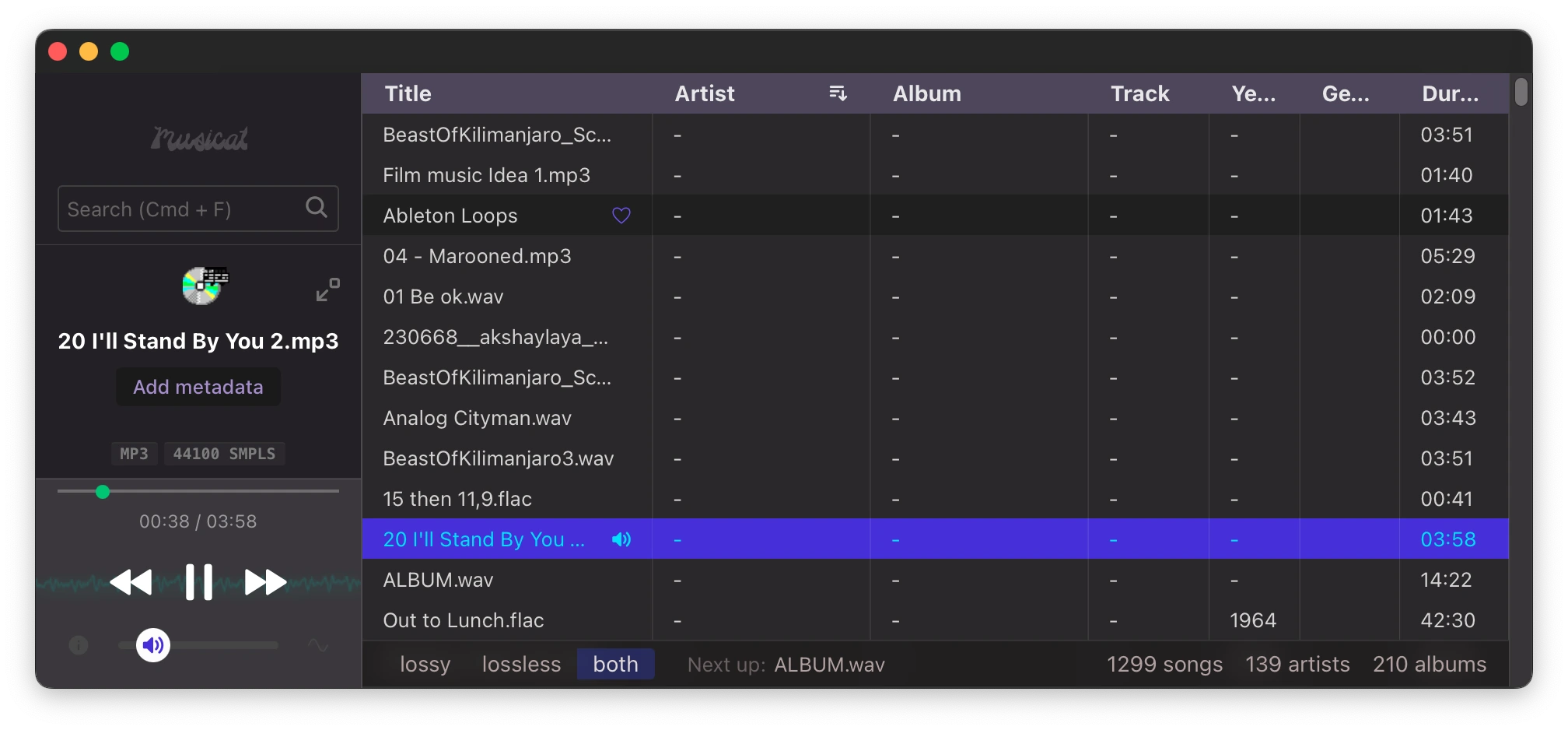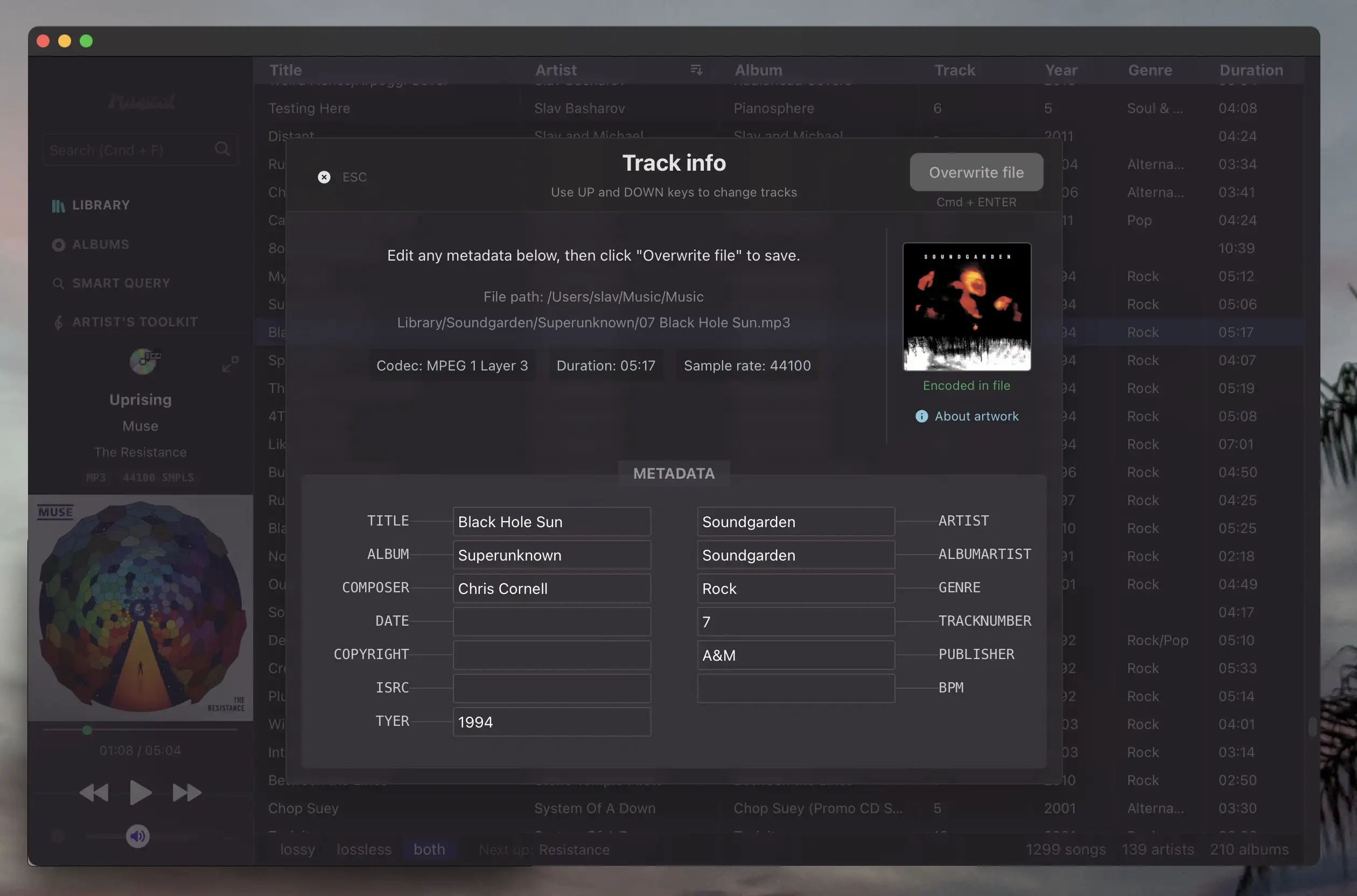The problem with music metadata
Part 2 of the devblog for MusicatMusic metadata is a bit of a mess.
In an ideal w🌎rld, it would magically tell you everything you need to know about a piece of music, and the content would always be rich, meaningful and complete.
In reality, the information is scattered, and by the time a recording reaches the listener, some data may be wrong or incomplete. In addition, software isn’t always great at managing and displaying it to listeners. Spotify didn’t show songwriter credits until 2018, more than a decade after its initial release. Not putting the blame entirely on Spotify, it’s also a challenge to fix and enrich data at such a scale if you don’t have the right data to begin with. As a general rule of thumb - capture good quality data at the source, and thank yourself later.
Besides the essentials - title, artist, album, genre and such, what other data should we care about? Tags aim to describe both the origin and contents of the audio file.
For those of us that keep music on a hard drive in 2022, there is still a good reason to keep metadata in check - it just looks ugly if you don’t:

There are also community efforts such as Musicbrainz and Discogs, online databases built from user-submitted metadata. The data is by nature not always complete, has some quality issues here and there but is still very usable for a huge chunk of recorded music.
Then there is Wikipedia, which can answer some obscure questions about artists, their albums and singles, as well as tell you the story behind them. This data is not structured like a database though, and only exists for article-worthy recordings.
So what can we do?
As listeners, we can make sure our local library is properly tagged using the information we have. There’s software out there that let’s you do this, but it’s not the best experience. As part of my development journey for musicat, I’m including a metadata editor / tagger with the following features:
- Read, write tags and artwork. MP3, FLAC supported currently
- Auto-migrate tags to latest format version. ID3v2.x is migrated to ID3v2.4 when using the tagger.
- Use artwork from album folder if available (since v1)
- Suggest auto-fixes for metadata. Avoid encoding issues, get rid of tags that players don’t understand (since v1)
- Bulk editing (not yet implemented)
- Auto-download artworks (not yet implemented)

Although we don’t have a single source of truth, we do have the first source of truth, which is the original recording that was made by the artist. If the artist also has tools to tag their music with consistency and integrity, our music libraries would be much happier.
As admin-y as it may be, metadata is an important part of the music industry.